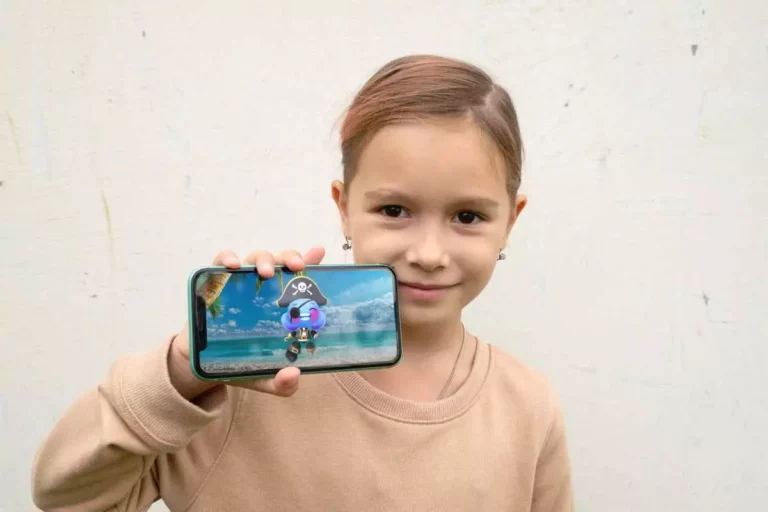In the rapidly evolving tech landscape, setbacks can often pave the way for groundbreaking ideas. Ivan Crewkov’s journey epitomizes this concept. After moving his family from Serbia to the United States in 2014 to launch his startup, Cubic.AI, with aspirations to introduce a cutting-edge smart speaker, he encountered an unexpected challenge. Just before the Kickstarter campaign was set to launch, Amazon debuted its Echo smart speaker, effectively overshadowing Cubic.AI’s efforts. Reflecting on this pivotal moment, Crewkov noted, “It was a disaster… we ended up selling the company two years later.” Despite this failure, the upheaval led him to a transformative opportunity in the realm of education tech.
While adapting his daughters, who primarily spoke Russian, into an English-speaking environment, Crewkov uncovered a deep concern about the limitations of language tutoring available to children. His eldest daughter was working with an online language tutor when Crewkov discovered the tutor was providing scripted responses. This moment ignited the idea for his next venture, Buddy.ai, which aims to revolutionize how children learn English as a second language.
Designed as an animated, multimodal conversational tutoring character, Buddy.ai seeks to make language acquisition engaging and interactive for young learners. Operating through a subscription app, the platform has gained traction not only in the U.S. but also in international markets, including schools in Brazil. Crewkov’s insights reveal the profound impact this venture has on children’s learning experiences, emphasizing that Buddy.ai’s development sprang from personal challenges faced by his own family.
However, the road to realizing this vision was fraught with obstacles. Given the complexities associated with developing AI for children, especially under regulations like the Children’s Online Privacy Act (COPA), the journey proved to be much longer than Crewkov anticipated. Initially aiming for a six-month rollout, he now describes that timeline as “naive.” The developmental process involved not just technical innovations but a comprehensive understanding of the varying linguistic challenges presented by children from diverse backgrounds trying to learn a new language. Crewkov illustrated the complexity: “We are trying to understand a 4-year-old Brazilian girl who is trying to say her first words in English alongside a 4-year-old Arabic girl from Saudi Arabia.”
Despite the myriad challenges, Buddy.ai has seen remarkable success in just seven years, approaching 55 million downloads and servicing over 22 million students annually. Recent funding, including an $11 million seed round led by BITKRAFT Ventures, is set to accelerate Buddy.ai’s growth, particularly as Crewkov recognizes the need for further product development. This funding round was not without its trials; the company engaged with 186 investors before finally securing commitments, highlighting the competitive nature of the tech startup landscape.
Crewkov pointed out an interesting aspect of the app’s appeal: “Children treat Buddy as a game.” This gamification aspect is crucial, as it keeps young learners engaged while providing educational content. The decision to partner with BITKRAFT Ventures came from their expertise in both technology and gaming, aligning perfectly with Buddy.ai’s vision. Such synergies are vital for success in the increasingly crowded learning app market, where other competitors like Univerbal and Loora have also emerged, albeit focusing on different segments.
With funding secured, Buddy.ai is poised to enhance its offerings significantly. Crewkov emphasizes the importance of developing a broader range of languages and strengthening relationships with educational institutions. The strategic focus on children learning English sets Buddy.ai apart from others in the field, as their differentiated approach targets a specific and high-demand demographic.
As technology continues to evolve, the integration of AI in educational contexts will only expand. Crewkov encapsulates this vision succinctly: “We just believe that the future is hybrid where AI tutors and AI agents can really help teachers. You just need to provide a lot of practice, practice daily.” As Buddy.ai navigates the next chapter of its journey, it stands as a testament to the transformative potential of technology in reshaping how we teach and learn languages. The lessons learned from setbacks are not merely failures but serve as stepping stones toward innovative solutions that can significantly benefit future generations.
- BYD’s Lingyuan: A New Era of Vehicle-Integrated Drone Technology - June 23, 2025
- The Rise of Xiaomi: An Overview of the Company’s Latest Innovations - June 23, 2025
- Ikea Enters the Thread Realm: The Timmerflotte Sensor - June 23, 2025


Leave a Reply